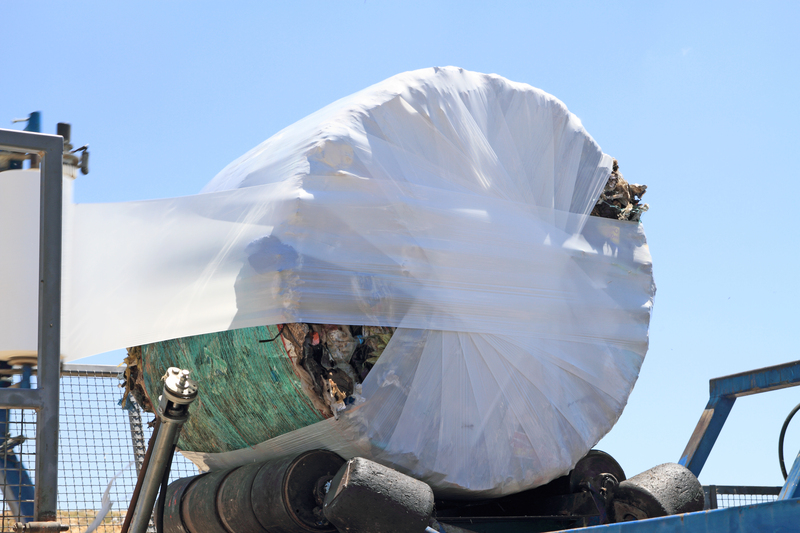Unlocking the Value: Benefits of Recycling Metals
In a world where sustainability and environmental conservation have become crucial, recycling metals stands out as a significant avenue for making a positive impact. As natural resources become increasingly scarce, the recycling of metals offers numerous benefits that enhance both environmental and economic landscapes. This comprehensive guide aims to delve into the myriad advantages of metal recycling and how it plays an essential role in modern society.
The Importance of Metal Recycling
Metal recycling is more than just a method of waste management; it is a cornerstone of sustainable practices. By understanding the underlying value of recycling metals, we can fully appreciate its role in crafting a healthier planet and economy. Let's explore the significance of this practice.
Environmental Conservation
- Reduction in Mining Activities: Mining for new metals is an energy-intensive and environmentally damaging process. By recycling metals, we reduce the demand for new extractions, thus diminishing the associated ecological disruptions.
- Energy Efficiency: The process of recycling metals like aluminum saves up to 95% of the energy required compared to producing new metal from raw ore. For steel, energy savings can reach up to 60%.
- Decrease in Pollution: Metal recycling helps lower both air and water pollution. Recycling facilities typically produce far fewer emissions than those that manufacture metals from raw ore.
- Preservation of Biodiversity: By reducing the need for mining, we consequently safeguard natural habitats that could be otherwise destroyed by mining activities.
Economic Advantages
- Job Creation: The recycling industry is a dynamic field that provides numerous employment opportunities. From collection to processing, recycling creates jobs in various sectors.
- Cost Efficiency: Producing metal from recycled sources is often cheaper than mining and processing new raw materials. This cost-effectiveness benefits both manufacturers and consumers.
- Market Value: Recycled metals retain high market value. With well-established trading networks, stakeholders can benefit financially from recycling programs.

Social Impact of Metal Recycling
Beyond the environmental and economic incentives, recycling metals carries significant social benefits. By fostering awareness and participation, societies collectively contribute toward a more sustainable and resilient future.
Community Engagement and Education
- Raising Awareness: Recycling programs encourage communities to become informed and proactive about environmental issues and the importance of conservation practices.
- Educational Opportunities: Schools and community groups can use metal recycling as an educational tool to teach about sustainability, science, and responsible resource management.
Corporate Social Responsibility (CSR)
Companies committed to sustainability through recycling can enhance their brand reputation. By integrating recycling practices into their operations, businesses not only reduce their environmental footprint but also demonstrate a strong sense of corporate social responsibility to stakeholders.

Challenges and Solutions in Metal Recycling
While the benefits of recycling metals are extensive, the process is not without challenges. Addressing these obstacles is integral to maximizing the advantages of metal recycling.
Infrastructure and Technology
- Advancements in Recycling Technology: Investment in advanced recycling technology can improve efficiency, reduce costs, and enhance the purity of recycled metals.
- Development of Adequate Facilities: Expanding the infrastructure to support metal recycling ensures more materials can be successfully salvaged and processed.
Policy and Legislation
Local and national governments play a critical role in fostering effective recycling schemes. Implementing supportive policies and incentives can encourage recycling practices and increase the participation rate among industries and individuals.
- Legislative Support: Laws mandating recycling and tax incentives for companies that adopt sustainable practices can significantly enhance the recycling rates.
- Educational Campaigns: Initiatives that educate the public about the benefits and methods of recycling can further drive participation.
Conclusion: The Future of Metal Recycling
Ultimately, the benefits of recycling metals are extensive and multifaceted, influencing environmental health, economic growth, and social dynamics. By investing in infrastructure, technology, and awareness, societies stand to gain significantly from enhanced recycling practices. The future of metal recycling holds promise as it continues to evolve in response to the global demand for sustainable resource management.
As individuals, companies, and governments, embracing the full spectrum of value that recycled metals offer is our collective responsibility. By doing so, we not only mitigate environmental impacts but also unlock opportunities for growth and innovation, paving the way for a sustainable future.